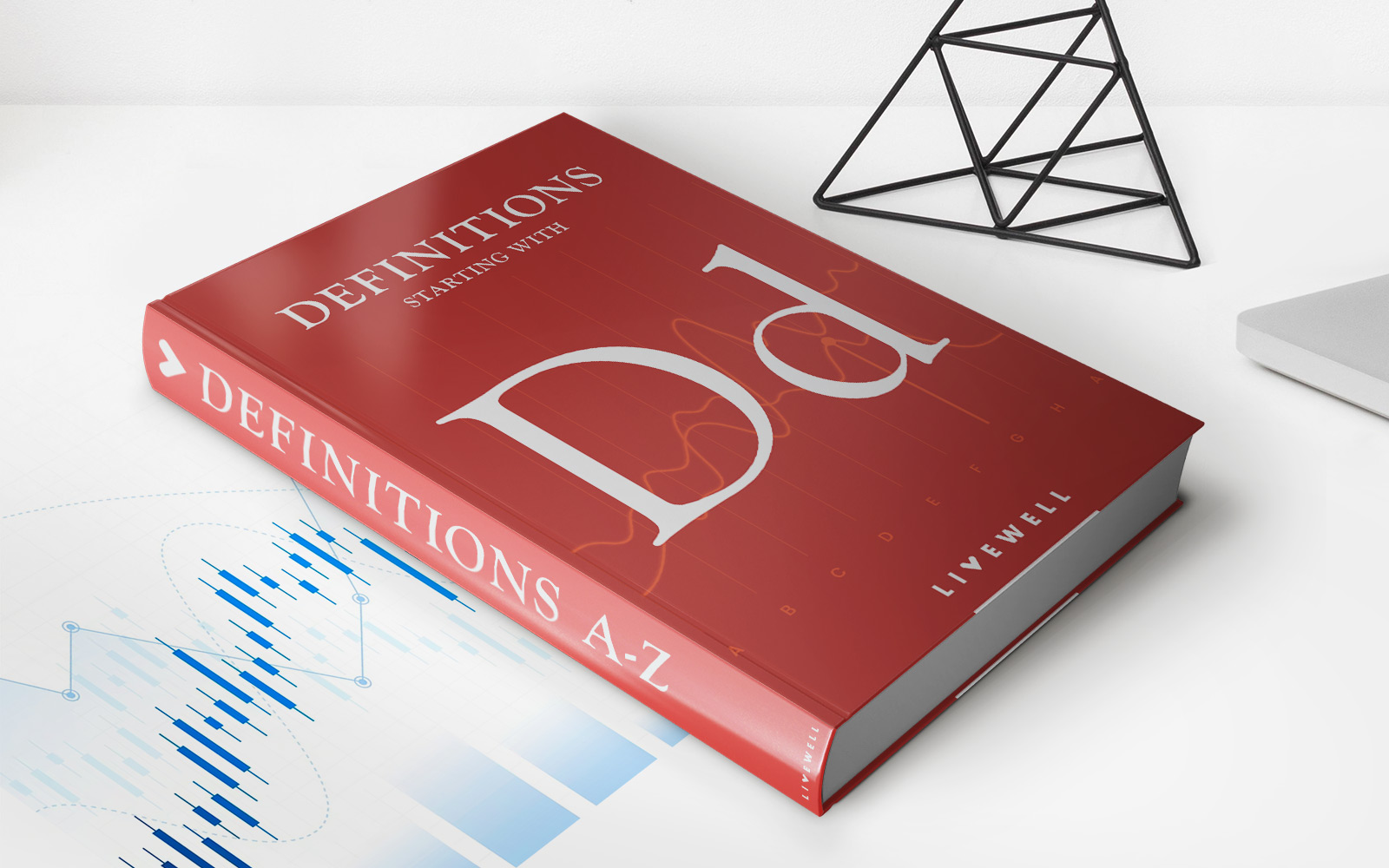Home>Finance>What You Should Be Aware Of When Getting A Credit Card


Finance
What You Should Be Aware Of When Getting A Credit Card
Modified: March 10, 2024
Discover the key things you need to know about credit cards before you apply. Stay informed and make smart financial decisions.
(Many of the links in this article redirect to a specific reviewed product. Your purchase of these products through affiliate links helps to generate commission for LiveWell, at no extra cost. Learn more)
Table of Contents
- Introduction
- Understanding the Basics of Credit Cards
- Types of Credit Cards
- Factors to Consider Before Getting a Credit Card
- Comparing Credit Card Offers
- Fees and Charges Associated with Credit Cards
- Understanding Interest Rates and APR
- Credit Card Rewards and Benefits
- Building and Managing Credit with Credit Cards
- Responsible Credit Card Usage and Pitfalls to Avoid
- Conclusion
Introduction
Welcome to the world of credit cards! Whether you’re new to the financial scene or a seasoned pro, navigating the vast array of credit card options can be overwhelming. Credit cards play a significant role in our daily lives, offering convenience, rewards, and the ability to build credit. However, it’s essential to be aware of the potential pitfalls and fees associated with credit card usage.
In this comprehensive guide, we’ll dive into the world of credit cards, providing you with the knowledge you need to make informed decisions. From understanding the basics to evaluating different types of credit cards, we’ll cover it all. We’ll also explore factors to consider before obtaining a credit card, comparing offers, managing fees and charges, and how to responsibly build credit.
Ultimately, our goal is to empower you with the necessary tools to navigate the credit card landscape confidently. By understanding the ins and outs of credit cards, you can make educated choices that align with your financial goals and lifestyle.
So, are you ready to embark on this credit card journey? Let’s begin by gaining a solid understanding of the basics.
Understanding the Basics of Credit Cards
Credit cards are a type of payment card that allows you to borrow money up to a certain credit limit. Unlike debit cards, which withdraw funds directly from your bank account, credit cards provide a line of credit issued by a financial institution. This credit facility enables you to make purchases and pay for them at a later date.
Each credit card comes with a unique sixteen-digit card number, accompanied by a security code and an expiration date. When making a purchase, you provide this information to the merchant, who processes the transaction through their payment processing system, such as a point-of-sale terminal or an online payment gateway.
One key aspect of credit cards is the billing cycle. This refers to the period between your credit card statement closing date and the payment due date. During this time, all the purchases you make are accumulated into one statement, which you receive either electronically or by mail. The statement itemizes the transactions, including the merchant name, date, and amount spent.
It’s important to note that credit cards typically charge an interest rate on outstanding balances if the full amount isn’t paid by the due date. This interest is calculated based on the Annual Percentage Rate (APR) assigned to the card. The APR represents the cost of borrowing money and is expressed as a percentage.
Moreover, credit cards often provide additional benefits beyond the ability to make purchases. These benefits may include travel insurance, extended warranty protection, rewards programs, and cashback offers. The specific perks and rewards can vary from card to card, so it’s essential to consider these factors when choosing the right credit card for your needs.
Now that we have a basic understanding of how credit cards work, let’s explore the different types of credit cards available in the market.
Types of Credit Cards
Credit cards come in various types, each designed to suit different financial needs and lifestyles. Understanding the different types of credit cards can help you choose the one that aligns with your specific requirements. Below are some common types of credit cards:
- Standard Credit Cards: These are the most basic type of credit cards and are widely accepted by merchants worldwide. They typically offer a revolving credit line and may come with a range of features such as rewards programs, cashback offers, and introductory APR rates.
- Rewards Credit Cards: These cards allow you to earn rewards for every dollar spent. Rewards can come in the form of points, miles, or cashback that can be redeemed for travel, merchandise, statement credits, or other benefits. Rewards credit cards often have higher interest rates and annual fees, but the potential rewards can outweigh these costs for those who use their cards frequently and pay off their balances in full.
- Travel Credit Cards: If you’re a frequent traveler, a travel credit card can provide you with various travel-related benefits. These may include airline miles, hotel rewards, airport lounge access, travel insurance, and discounts on travel expenses. Travel credit cards often have partnerships with specific airlines or hotel chains, allowing you to maximize your rewards for those particular brands.
- Balance Transfer Credit Cards: If you have high-interest debt on another credit card, a balance transfer credit card can help you consolidate and pay off your balances more efficiently. These cards often provide a low or 0% introductory APR for a specified period, allowing you to transfer your existing balances and save on interest charges.
- Secured Credit Cards: Secured credit cards are suitable for individuals who are new to credit or have a limited credit history. They require a security deposit as collateral, which also determines the credit limit. Secured credit cards can help build or improve credit scores when used responsibly, and many issuers offer an upgrade path to unsecured cards after demonstrating good credit behavior.
These are just a few examples of the types of credit cards available in the market. It’s crucial to assess your financial situation, spending habits, and lifestyle to determine which type of credit card will best serve your needs. Once you have a clear understanding of the type of credit card you’re looking for, it’s time to consider the factors to consider before getting a credit card, which we’ll explore in the next section.
Factors to Consider Before Getting a Credit Card
Before applying for a credit card, it’s important to consider several factors to ensure that you choose the right card for your financial needs and goals. Here are some key factors to consider:
- Credit Score: Your credit score plays a crucial role in determining your eligibility for different credit cards. A higher credit score generally allows you to qualify for cards with better terms, such as lower interest rates and higher credit limits. It’s a good idea to check your credit score beforehand and choose cards that align with your current credit profile.
- Interest Rates and Fees: Take the time to understand the interest rates and fees associated with the credit card. Look for cards with low interest rates, especially if you plan to carry a balance from month to month. Be aware of any annual fees, late payment fees, balance transfer fees, and other charges that may apply to the card. Consider whether the benefits and rewards outweigh the potential costs.
- Cardholder Benefits: Consider the specific benefits offered by the credit card. Are you looking for a card with cashback rewards, travel perks, or shopping discounts? Pay attention to the rewards program, bonus offers, and any other perks that align with your spending patterns and lifestyle. Compare the benefits of different cards to find the ones that provide the most value for your needs.
- Credit Limit: The credit limit is the maximum amount of money you can borrow on your credit card. Consider your spending habits and financial responsibilities when choosing a card with an appropriate credit limit. The limit should be high enough to accommodate your needs without tempting you to overspend and potentially accumulate debt that you can’t repay comfortably.
- Issuer Reputation: The reputation and credibility of the credit card issuer is an important aspect to evaluate. Choose a card from a reputable and reliable financial institution that has a good track record of customer satisfaction. Research the issuer’s customer service, card security measures, and overall reputation in the industry.
By carefully considering these factors, you can narrow down your options and select a credit card that aligns with your financial goals and lifestyle. Once you have a shortlist of potential cards, it’s time to compare the offers and terms to make an informed decision, which we’ll explore in the next section.
Comparing Credit Card Offers
With a wide range of credit cards available in the market, comparing offers can help you find the one that best suits your financial needs and preferences. Here are some essential factors to consider when comparing credit card offers:
- Interest Rates: Compare the annual percentage rates (APR) offered by different credit cards. Lower interest rates mean less finance charges when carrying a balance. Look for cards that offer introductory 0% APR on purchases and balance transfers for a specified period, as this can save you money on interest charges.
- Annual Fees: Many credit cards charge an annual fee for card membership. Consider the annual fee in relation to the benefits and rewards offered by the card. If the rewards and benefits outweigh the cost of the annual fee, it may be worth considering, especially if you plan to take full advantage of the card’s features.
- Rewards and Bonuses: Compare the rewards programs offered by different cards. Look for cards that align with your spending habits and offer rewards or cashback on categories where you tend to spend the most. Consider any sign-up bonuses, which often provide a generous amount of rewards points or cashback when you meet certain spending requirements within a specified timeframe.
- Introductory Offers: Some credit cards come with introductory offers, such as waived annual fees for the first year, bonus rewards, or promotional APR rates. Evaluate these offers and consider how long the introductory period lasts. Take note of any terms and conditions that apply, such as minimum spending requirements or balance transfer deadlines.
- Additional Benefits: Look beyond the rewards and fees and consider the additional benefits offered by each credit card. These may include travel perks, such as airport lounge access or travel insurance, purchase protection, extended warranty coverage, or special discounts with partner merchants. Consider which benefits are most valuable to you and prioritize cards that offer them.
When comparing credit card offers, it’s essential to weigh the various factors against your personal financial goals and spending habits. Consider how you plan to use the card and the benefits you value the most. By comparing offers meticulously, you can find a credit card that aligns with your needs and helps you make the most of your financial transactions.
Once you have selected a credit card, it’s important to understand the fees and charges associated with it. In the next section, we’ll explore the common fees and charges you may encounter with credit cards.
Fees and Charges Associated with Credit Cards
While credit cards offer convenience and benefits, it’s important to be aware of the fees and charges that may accompany their use. Understanding these costs can help you make informed decisions and manage your finances effectively. Here are some common fees and charges associated with credit cards:
- Annual Fee: Many credit cards charge an annual fee for card membership. The fee can vary depending on the type of card and the benefits it offers. Consider whether the benefits and rewards of the card outweigh the cost of the annual fee. Some cards may waive the annual fee for the first year as a promotional offer.
- Interest Charges: If you carry a balance on your credit card by not paying the full statement balance by the due date, you’ll incur interest charges. The interest rate, also known as the Annual Percentage Rate (APR), can vary depending on the card and your creditworthiness. It’s crucial to manage your balance and aim to pay it off in full to avoid high interest charges.
- Cash Advance Fee: If you use your credit card to withdraw cash from an ATM or obtain cash at a bank, you may incur a cash advance fee. This fee is typically a percentage of the cash amount you withdraw and has a higher interest rate compared to regular purchases. It’s best to avoid cash advances unless it’s an absolute necessity.
- Balance Transfer Fee: Some credit cards allow you to transfer balances from other credit cards to take advantage of lower interest rates. However, there may be a balance transfer fee, which is typically a percentage of the transferred amount. Consider this fee when evaluating the potential savings from transferring balances.
- Late Payment Fee: Missing your credit card payment due date can result in a late payment fee. The fee varies by card but can be significant. It’s crucial to pay your credit card bill on time to avoid late payment fees and potential damage to your credit score.
- Foreign Transaction Fee: If you use your credit card for transactions in a foreign currency or outside your home country, you may incur a foreign transaction fee. This fee is usually a percentage of the transaction amount and can add up quickly if you frequently travel or make international purchases.
- Overlimit Fee: Some credit cards allow you to spend beyond your credit limit, but this may incur an overlimit fee. It’s important to monitor your credit card balance and stay within your credit limit to avoid this fee.
It’s crucial to carefully review the terms and conditions of your chosen credit card to understand the specific fees and charges that may apply. Consider how these fees will impact your overall credit card usage and whether the benefits and rewards outweigh the costs. Being aware of these fees can help you manage your credit card effectively and avoid unnecessary expenses.
Next, let’s delve into the concept of interest rates and APR on credit cards, and why understanding them is crucial for managing your credit wisely.
Understanding Interest Rates and APR
Interest rates and APR (Annual Percentage Rate) play a significant role in credit card usage and can have a significant impact on your financial well-being. Understanding these concepts is crucial for making informed decisions and managing your credit wisely.
Interest rate refers to the cost of borrowing money on your credit card. It is expressed as a percentage and represents the annualized cost of carrying a balance on your card. The interest rate varies depending on factors such as the credit card issuer, your creditworthiness, and prevailing market conditions.
It’s important to note that credit cards offer a grace period, which is a period of time during which you can avoid paying interest on purchases. This grace period typically ranges from 21 to 25 days from the statement closing date. If you pay your statement balance in full by the due date, you won’t incur any interest charges.
However, if you carry a balance from month to month by not paying the full statement balance, the interest charges will apply. The interest rate is then applied to the outstanding balance, and it accumulates daily based on the average daily balance method or the daily balance method.
APR, on the other hand, takes into account not just the interest rate but also other fees and charges associated with the credit card. It provides a more comprehensive picture of the cost of borrowing. APR includes fees such as annual fees, balance transfer fees, and cash advance fees, in addition to the interest rate.
Understanding APR is crucial for comparing credit card offers and evaluating the overall cost. When comparing cards, pay attention to the APR rather than just the interest rate alone. However, keep in mind that the APR may vary based on the type of transaction. For example, cash advances and balance transfers often have higher APRs compared to regular purchases.
It’s important to manage your credit card balance and strive to pay off the statement balance in full each month to avoid interest charges. If carrying a balance becomes necessary, consider credit cards with low-interest rates or promotional 0% APR offers on balance transfers or purchases to minimize the cost.
By being mindful of interest rates and APR, you can make informed decisions about your credit card usage, minimize interest costs, and ultimately maintain better control over your financial well-being.
Next, let’s explore the world of credit card rewards and benefits, and how they can enhance your credit card experience.
Credit Card Rewards and Benefits
Credit card rewards and benefits can add significant value to your credit card usage, making them more than just a tool for convenient payments. When used strategically, they can help you earn rewards, enjoy perks, and enhance your overall financial experience. Let’s explore some common credit card rewards and benefits:
Cashback Rewards: Many credit cards offer cashback rewards programs, allowing you to earn a percentage of your purchases back in the form of cash rewards. Cashback rewards can be redeemed as statement credits, direct deposits to your bank account, or checks. This type of reward is ideal for those who prefer flexibility in how they use their rewards.
Travel Rewards: Travel rewards credit cards offer rewards in the form of points or miles, which can be redeemed for flights, hotel stays, car rentals, or other travel-related expenses. Some cards also offer additional perks such as airport lounge access, free checked bags, or travel insurance. If you travel frequently or have a favorite airline or hotel chain, a travel rewards card can provide significant benefits.
Merchant-Specific Rewards: Some credit cards partner with specific retailers or brands, offering enhanced rewards for purchases made at these establishments. These cards may provide higher cashback percentages or exclusive discounts, making them attractive for individuals who frequently shop at particular stores or online platforms.
Points-Based Rewards: Points-based rewards programs allow you to accumulate points for every dollar spent, which can be redeemed for a variety of options, including merchandise, gift cards, or even experiences like concert tickets or travel packages. These programs often provide flexibility in how you redeem your points, allowing you to choose rewards based on your preferences.
Introductory Bonuses: Many credit cards offer introductory bonuses to new cardholders. These bonuses often provide a significant number of rewards points or cashback when you meet specific spending requirements within a specified timeframe. Consider these bonuses when comparing credit card offers, as they can provide a jump-start to earning rewards.
Additional Benefits: Credit cards may offer additional benefits such as extended warranty protection, purchase protection against damage or theft, price protection, concierge services, and access to exclusive events or offers. These benefits can provide added value and peace of mind when using your credit card for purchases.
When choosing a credit card, carefully evaluate the rewards and benefits offered. Consider your spending patterns and lifestyle to determine which rewards program aligns with your needs and preferences. Pay attention to any annual fees or specific requirements for earning or redeeming rewards.
Remember, while rewards and benefits can be enticing, it’s crucial to use your credit card responsibly and avoid unnecessary spending to chase rewards. Choose a card that not only provides attractive rewards but also fits well with your financial goals and spending habits.
Now that we’ve explored the world of credit card rewards and benefits, let’s delve into using credit cards as a tool for building and managing credit.
Building and Managing Credit with Credit Cards
Credit cards can be powerful tools for building and managing your credit. Responsible credit card usage can help you establish a positive credit history, boost your credit score, and open doors to better financial opportunities in the future. Here’s how you can effectively build and manage your credit with credit cards:
Establishing Credit: If you’re new to credit or have a limited credit history, credit cards can help you establish a positive credit profile. Start by applying for a secured credit card, which requires a cash deposit as collateral. Use the card regularly for small purchases, stay within your credit limit, and make timely payments. Over time, this responsible credit card usage will help build a positive credit history.
Consistent Payment History: One of the most critical factors in building and managing credit is making timely payments. Pay your credit card bill in full and on time every month to demonstrate your reliability as a borrower. Payment history makes up a significant portion of your credit score, so it’s essential to establish a consistent record of on-time payments.
Utilization Ratio: Your credit utilization ratio is the percentage of your credit limit that you’re currently using. Aim to keep this ratio low, ideally below 30%. By keeping your credit card balances low relative to your credit limit, you show lenders that you can manage credit responsibly, leading to a positive impact on your credit score.
Length of Credit History: The length of your credit history also plays a role in your credit score. The longer you have a credit card in good standing, the more it positively impacts your credit history. Therefore, it’s beneficial to keep your oldest credit card active, even if you’re using other cards for most of your purchases.
Regularly Monitor Your Credit: It’s crucial to regularly monitor your credit report and credit score. Reviewing your report allows you to spot any errors or discrepancies and take the necessary steps to correct them. You can access your credit report for free once a year from each of the three major credit bureaus or use credit monitoring services to stay updated on any changes to your credit profile.
Avoiding Excessive Debt: While credit cards can be beneficial for building credit, it’s important to use them responsibly and avoid accumulating excessive debt. Only charge what you can afford to pay back, and keep your credit card balances manageable. Carrying high levels of debt can negatively impact your credit score and make it more challenging to manage your finances.
By implementing these strategies, you can effectively build and manage your credit using credit cards. Remember, building good credit takes time and responsible financial habits. Use your credit cards wisely, make prompt payments, and keep your credit utilization in check to reap the long-term benefits of a strong credit profile.
Now that we’ve covered building and managing credit, let’s explore some important tips to ensure responsible credit card usage and avoid common pitfalls.
Responsible Credit Card Usage and Pitfalls to Avoid
Using credit cards responsibly is crucial for maintaining a positive financial standing and maximizing the benefits they offer. To ensure responsible credit card usage and avoid common pitfalls, consider the following tips:
Create a Budget: Set a budget and stick to it. Determine how much you can comfortably afford to spend and pay off each month. A budget helps you avoid impulse purchases and manage your credit card balances effectively.
Prompt Payment: Pay your credit card bill in full and on time every month. Late payments can result in late fees, damage your credit score, and accrue high-interest charges. Consider setting up automatic payments or reminders to ensure you never miss a due date.
Avoid the Minimum Payment Trap: While paying the minimum amount due on your credit card may be tempting, it can lead to a never-ending cycle of debt. Strive to pay off your credit card balance in full each month to avoid interest charges and eliminate the burden of carrying debt.
Manage Credit Utilization: Keep your credit card balances low relative to your credit limit. Aim to utilize 30% or less of your available credit. High credit utilization can negatively impact your credit score, as it suggests a higher risk of default to lenders.
Monitor Your Statements: Regularly review your credit card statements and transactions to ensure accuracy and detect any fraudulent activity. If you notice any discrepancies, report them promptly to your credit card issuer.
Avoid Cash Advances: Steer clear of cash advances whenever possible. Cash advances typically carry higher interest rates, and interest begins to accrue immediately, making them an expensive borrowing option. Explore alternatives such as personal loans if you need access to cash.
Avoid Excessive Applications: Be mindful of the number of credit card applications you submit. Multiple applications in a short period can negatively impact your credit score. Apply for new credit only when necessary and justified based on your financial needs.
Regularly Review Card Benefits: Familiarize yourself with the benefits and rewards offered by your credit card. Take advantage of features like cashback rewards, travel perks, and purchase protection to maximize the value you get from your card.
Manage Your Credit Limit Increases: If you are offered a credit limit increase, carefully consider whether you need it. Increasing your credit limit can be tempting, but it also increases the temptation to overspend. Stick to a credit limit that aligns with your budget and financial goals.
Avoid Closing Old Credit Accounts: Closing old credit card accounts can harm your credit score by reducing your overall credit history length. If you no longer use a card, consider keeping it open with a small recurring charge to maintain its positive impact on your credit profile.
By adhering to these responsible credit card usage practices and avoiding common pitfalls, you can effectively manage your credit, build a positive credit history, and enjoy the benefits that credit cards offer without falling into financial traps.
As we conclude this guide, remember that credit cards are valuable financial tools when used responsibly. Use them as a means to enhance your financial flexibility, earn rewards, and build a solid credit foundation for future financial endeavors.
Conclusion
Credit cards are powerful financial tools that, when used wisely, can provide convenience, rewards, and help build a strong credit history. By understanding the basics of credit cards, considering factors such as interest rates and fees, and comparing offers, you can make informed decisions that align with your financial goals and lifestyle.
Throughout this guide, we’ve explored the different types of credit cards, ranging from standard cards to rewards and travel-specific options. We’ve discussed the importance of factors such as your credit score, interest rates, annual fees, and cardholder benefits when choosing the right card for you.
Additionally, we’ve delved into the significance of responsible credit card usage, including paying bills on time, managing credit utilization, and avoiding common pitfalls. Building and managing credit with credit cards is a gradual process that requires discipline, regular monitoring, and a commitment to maintaining good financial habits.
Remember to consider the rewards and benefits offered by credit cards, such as cashback, travel perks, and points-based systems, keeping in mind that responsible credit card usage should always take precedence over chasing rewards. The key is finding the right balance between maximizing the benefits and keeping your financial well-being intact.
As we conclude, always prioritize responsible credit card usage by creating a budget, making timely payments, and monitoring your credit closely. By doing so, you can take full advantage of the benefits credit cards offer while avoiding excessive debt and financial strain.
Ultimately, credit cards can be valuable financial instruments when used as tools for responsible spending, building credit, and achieving financial goals. By arming yourself with knowledge and implementing responsible credit management strategies, you can leverage the advantages of credit cards to enhance your financial well-being and secure a brighter financial future.














